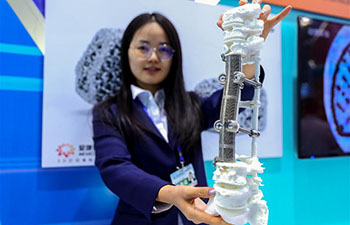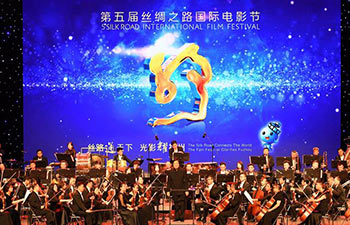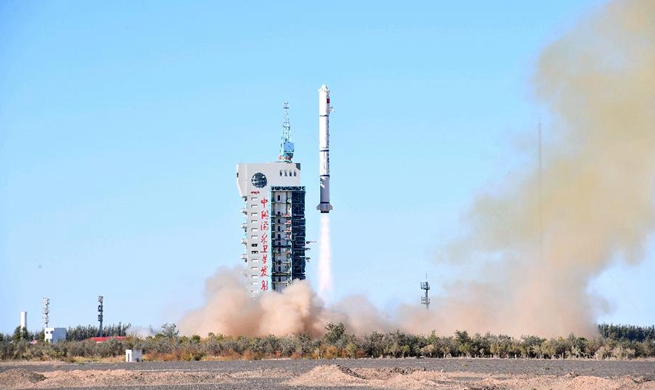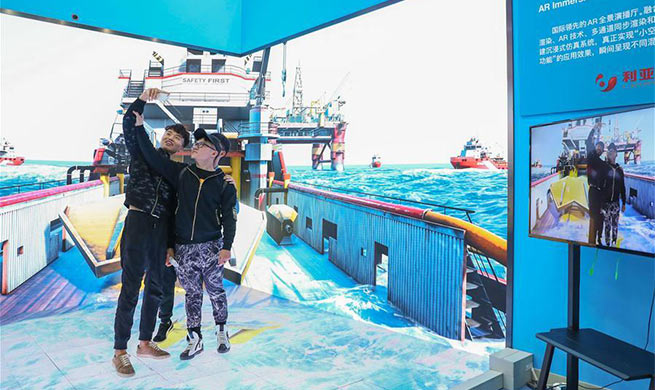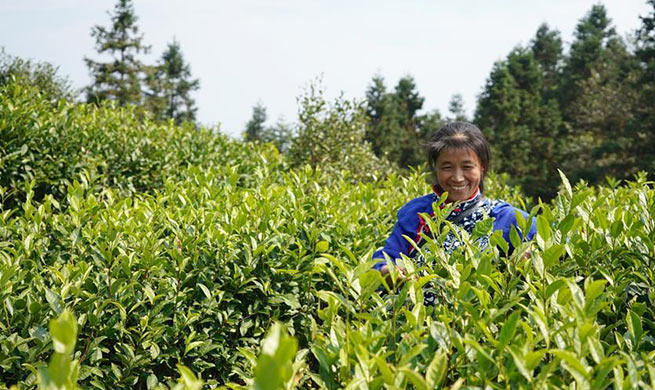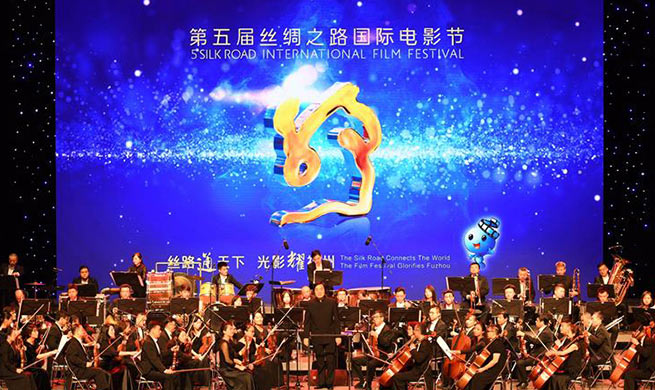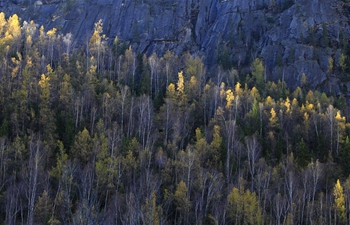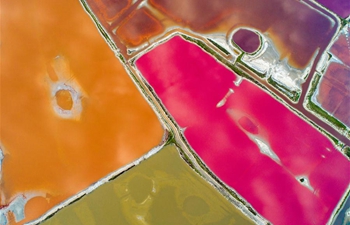TOKYO, Oct. 9 (Xinhua) -- Tokyo's world-renowned Tsukiji fish market closed its doors on Saturday for the last time after an illustrious 83 years of trading, with the closure bringing mixed feelings from both traders and tourists.
Many of its thousands of workers are now due to open for business at a new site in the Toyosu area, located about 2 km away from the original site, on October 11.
Officials decided that Tsukiji had become unsanitary, rundown and no longer able to meet Japan's insatiable demand for fresh fish. A relocation plan was first proposed almost 20 years ago, but was delayed several times.
Most recently, toxic substances, remnants of the gas facility that once operated there, were found in Toyosu, costing billions of yen in cleanup operations. The site was deemed safe in July and plans to move were finalized.
"It's ironic," said one market operator, Minami Setsuko, who opposes the move. "They say Tsukiji isn't safe any more, but the new site is full of waste left over from the industry that used to be there."
She is not the only worker who is not looking forward to moving. According to one survey, more than 80 percent of Tsukiji workers oppose the closure. Some are concerned their customers will not follow them to the new market, which they fear is in a less convenient place for many restaurant owners.
They will each pay millions to replace essential equipment such as refrigerators and freezers.
The weeks leading up to the move have seen hundreds of Tsukiji workers protesting, and in September, 56 workers sued the city in a failed last-ditch attempt to halt it.
Tsukiji Market originally opened after the Nihombashi market was destroyed in the great earthquake of 1923. It quickly became the world's largest seafood market, with hundreds of types of seafood for sale.
It resembled a small city unto itself, with restaurants, a bank, a post office, clinics, and shops selling cooking equipment and souvenirs.
On its busiest days, the market was host to around 40,000 visitors and workers, and many of its businesses were passed through family generations.
It was also one of Japan's most popular tourist attractions. For years, visitors to Tokyo flooded the market each morning to eat the freshest sushi, buy souvenirs, and watch the famous rambunctious auctions, where enormous bluefin tuna sell for millions of yen.
Park Juun-ho, visiting from South Korea, said he only learned that he and his wife Soo-jin were visiting Tsukiji on its last day when they arrived. "We're definitely super lucky," he said. "It made the sushi more delicious," his wife added.
The market also has a special place in the hearts of foreign residents based here. "I came to Tsukiji on my first morning in Japan 10 years ago," said Simon Jackson, from Britain.
"I was jet-lagged and woke up early so it made sense to go. I had breakfast and it was the first time I'd eaten proper sushi in my life. I wasn't planning to stay in Japan for more than a couple of months, but I'm still here, and soon Tsukiji won't be. I'm sad to see it go," Jackson said.
The traders have, over the years, however, had an uneasy relationship with tourism. The market was not designed with tourists in mind, and they have been blamed for congestion among its stalls and narrow lanes.
In 2008, the market barred tourists from the tuna auction for one month following complaints that they were blocking traffic, distracting workers with flash photography, and endangering hygiene by handling the produce themselves. Tourists were readmitted later in limited numbers and under strict conditions.
Some areas of the market remained off-limits to visitors altogether. "Steering around them is part of the job," said Masahiro Asano, who worked as a driver at Tsukiji for 11 years. "And every day there seems to be a few more of them."
It remains to be seen if the new site will retain the lure the old site had for tourists, or, indeed, customers. Many restaurants in the Tokyo area will be affected by the move, and some say they will be forced to temporarily close their businesses or source their fresh fish from elsewhere.
But Tsukiji saw no fall in activity in its final days. Retired auctioneer Hisao Ishii returned to the market to see its last auction. "I'm almost crying. Today is a sad day of goodbyes. Tsukiji tried to meet the times, but it is getting older," Ishii was quoted as saying.
After the move, Tsukiji will become a parking lot for industry vehicles in time for the 2020 Tokyo Olympics. The site, under current plans, will thereafter become a tourist center.
